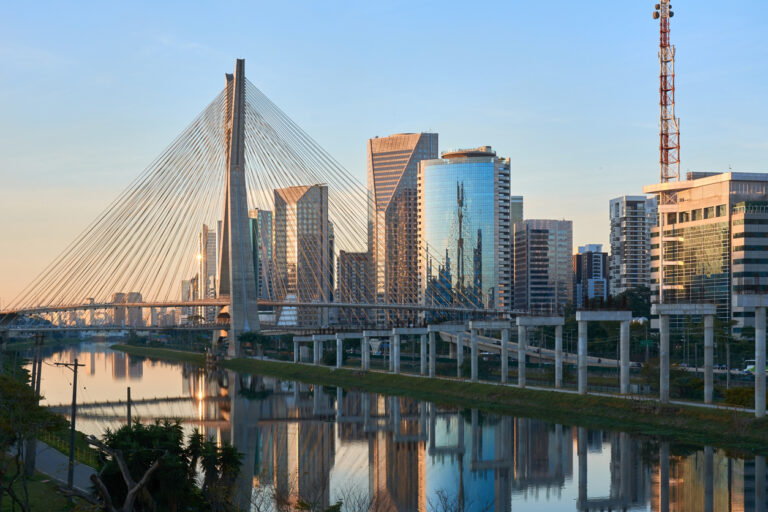The present situation of protracted crises – climate, biodiversity, the pandemic and the war in Ukraine – and their repercussions on human wellbeing appear overwhelming. With the Green Deal, Team Europe and Global Gateway the EU has presented several ambitious initiatives to address these crises but has neglected the dialogue with its partners. Europe was under considerable (geo)political pressure to provide these responses, yet the internal discussions leading to their adoption and the time pressure meant that the dialogue with its international partners was limited in both scope and depth. This not only contradicts its aim to move away from so-called ‘donor-recipient relations’ but also jeopardises the effectiveness and sustainability of its initiatives. In the long run, Europe can only address these crises by building and sustaining strong and responsive global alliances.
Europe’s global initiatives and (self)perception
By announcing the EU Green Deal in 2019, the European Commission sought to redefine Europe’s response to the climate crisis by radically decarbonising its economy. When the global pandemic began, concerns were raised that the Green Deal might not survive. Yet, the Green Deal proved to be resilient and reinforced the urgency that continuing ‘business as usual’ would diminish the prospects for global development. It has been suggested that the pandemic created a political momentum for a fundamental reorientation of the EU budget and internal recovery funds towards realising its Fit for 55 ambition (i.e. reducing net greenhouse gas emissions by at least 55% by 2030). Although the EU seeks to project its Green Deal through international cooperation, recent ETTG research concludes that the diverging priorities of European and African states have to be addressed upfront to lay the foundations for effective future cooperation.
Russia’s invasion of Ukraine shocked the EU to its core but also strengthened its resolve to provide a concerted response. During the first weeks of the war the EU emphasised that it has never been as united and decisive in its actions, responding quickly with far-reaching sanctions and maintaining this unity until recently. The war also reinforced the transatlantic relationship and the EU’s cooperation with NATO, including with the United Kingdom, but also showed how fragile the EU’s partnerships are with the rest of the world.
The voting at the UN General Assembly was a sigh of relief for the EU as a majority of 141 of the 193 member states condemned Russia’s aggression against Ukraine. Yet, it also made clear that many countries outside Europe and the US perceive this war as primarily concerning the West, with repercussions on the rest of the world (soaring food and energy prices, as well as the neglect of other current conflicts). This concerns not only China and India and their respective relationships with Russia but also African countries, 28 of which supported the resolution while 16 abstained, 9 did not partake in the vote and one voting against. While the states all had their various reasons and considerations for their voting decision, Germany’s foreign minister did acknowledge that during several phone calls with African leaders she was asked where the West had been for them in the past.
While these sentiments and tensions are in part sustained and reproduced by Europe’s (post-) colonial history, the EU’s primarily internal crisis management over the past decade has put additional strains on its relations with third countries. The EU’s view that it has confidently and visibly addressed the pandemic and the climate crisis becomes less accepted the further one moves away from Brussels. Eurocentrism is another word for it.
Europe’s partners argue that the EU, as one of the historically biggest polluters and CO2 emitters, has not put enough focus and energy into the external dimension of the Green Deal and into cooperating with other countries and regions. With its Global Gateway initiative, the EU aims to mobilise investments for climate protection and clean energies to provide partners with an alternative to Chinese investments in these sectors. Yet it is ultimately a geopolitical project by the EU, which needs to carefully integrate partner countries’ own interests and plans. With the COP 27 in Sharm el-Sheikh to take place in November 2022, the EU must deliver its part and present reliable support for developing country needs, which are likely to focus on issues such as Loss and Damage and adaptation.
External perceptions of the EU’s global pandemic response were no different. While the EU provided large sums of immediate emergency relief to partner countries and eagerly refers to its massive support to COVAX and global vaccine distribution, many partners are more critical. While acknowledging the EU’s support, its ‘Europe first’ mentality and wider global vaccine inequity and pandemic-related travel bans have soured relationships with many countries. Perhaps owing to its geopolitical ambitions, the EU has actively promoted a positive assessment of its pandemic response. Yet the EU’s response is judged against a wider historical pattern where partners feel that their concerns or specific needs take second place to European citizens and European commercial interests.
Towards international partnerships
EU development policy is meant to have partner’s concerns and development needs at its heart by design. Yet our research on the EU’s global cooperation patterns during the past and present decade observes that the EU has gradually moved from a needs-driven to an interest-driven development policy. The many input targets for specific sectors, priorities that are included in NDICI-Global Europe unfortunately largely prescribed many of the EU’s cooperation choices as outlined in country and thematic strategies published in December.
The EU’s efforts to move away from so-called ‘donor-recipient relations’ still struggle to acknowledge and move away from the unequal power relations through which these relations have been constructed and maintained. In order to realise this fundamental change, the EU needs to create spaces for dialogue and critical reflection with its partners on any decisions that may affect them. The EU should ensure that such dialogue goes beyond consultation alone and that their partners’ views and concerns are adequately represented and considered at an early stage in the EU’s policy processes. Within the EU, the Parliament and the Member States should also use their various formats for exchange with the Commission and External Action Service to encourage progress towards strengthening the Union’s international partnerships.
Authors: Svea Koch Researcher and Niels Keijzer Senior Researcher, DIE.
Photo by Patrick C. Freyer on Unsplash.
The views are those of the author and not necessarily those of ETTG.




